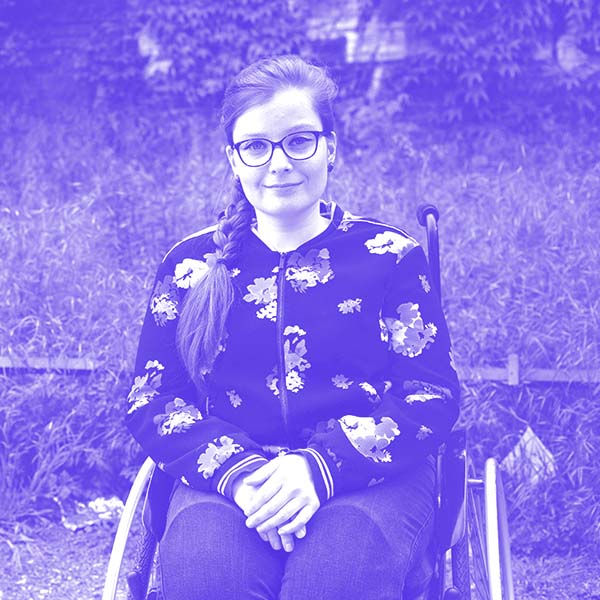Use: Third gender entry
Avoid: Third gender
Since 01 January 2019, German civil status law has added a third gender entry, namely, "divers", in addition to "female" and "male". Before this date, it was already possible to select "no gender". So now, there are four options. "Divers", however, is not a separate (third) gender, but a collective category for all those who "cannot be permanently assigned to either the male or the female gender" -according to the Bundesverfassungsgericht (Federal Constitutional Court). These can be people with very diverse gender identities.
Use: trans*, trans, transgender people, transident
Avoid: transsexual
Trans* is an adjective and since trans* is not about sexual orientation or sexuality but about gender or gender identity, the term "transsexual" is rejected and increasingly replaced by the other terms. If “transsexual" is used as a self-designation, this should be respected.
Use: gender reassignment
Avoid: change of sex
The term "sex change" is often used to describe interventions that change the sex of the body. Using this term suggests that trans* people "change their sex" in this way, i.e., that someone was once a woman and is now a man. But this is wrong and does not correspond to the self-perception of trans* people. Sex and gender are more than just biological characteristics and these interventions are experienced as adjustments to gender identity. The body is changed, but the gender identity remains the same even after the reassignment.
Use: classified as a girl at birth or assigned to the male or female sex
Avoid: "born as a female", "biological" woman
Like the term "gender reassignment" this formulation suggests that a trans* man was once a woman and gives the sex organs the definitional sovereignty over what gender is and constitutes. However, gender is more than a biological characteristic or sexual organs. As Simone de Beauvoir said: "one is not born a woman, one becomes one". A person’s gender identity is what is decisive. Newborns are assigned a gender at birth based on their physical sexual characteristics. For cisgender people this assignment fits, for transgender people it does not.
Use: lived a long time as a man
Avoid: used to be a man
As in the previous section, the question is what is decisive for gender and what has changed with a person’s coming out as trans*. A trans* woman was never a man. She was classified as such at birth and may have lived as a boy or a man for decades. But she was always a woman, she may not have told anyone for a long time and her appearance and demeanour (gender expression) did not correspond to her female gender identity. So, she lived as a man, even if she wasn't one.
Use: same-sex marriage, marriage for all
Avoid: gay marriage, homosexual marriage
Marriage for all is about opening up marriage to same-sex couples. These are not only male couples, or female couples. Not only homosexual people, bisexual and pansexual people too can marry someone of the same sex. The term "gay marriage" is therefore not only casual, but also imprecise and makes bisexuality invisible.
Say: women, men and non-binary persons or cisgender and transgender women / men / people
Avoid: women, men and trans* persons
Trans* women are also women, trans* men are also men, so they are also included in the list of men and women and do not need an extra mention that implicitly denies that they are "real" women or men. If, for example, a distinction is to be made between men who were already classified as male at birth and those who were not assigned to the male sex, the correct term would be cisgender and transgender men. Not all people are male or female. For example, there are non-binary people who do not (cannot) assign themselves to the prevailing binary gender norm. To include them, saying women, men and non-binary persons would be correct.
Use: demonstration for the rights of queer people
Avoid: carnivalesque gay parade
CSDs are described in many reports as "carnivalesque". This implies that something is piercingly bright and garish, loud, out of the ordinary; unusual and bizarre. This seems a rather inappropriate way to describe a demonstration for equal rights. Moreover, not only gay men turn up at the parade. CSD also attracts lesbians, bisexual or non-binary people, and calling it a gay parade ignores this fact.
Use: openly gay
In German, avoid: bekennend schwul(admittedly gay)
Admitting to something is confessing to an act of wrongdoing or to being guilty. Being homosexual has nothing to do with guilt. So avoid saying someone is "bekennend Schwul". The use of this term is evidence of an uptight approach to homosexuality on the part of the person using the phrase.
Use: openly lesbian
Avoid: convinced lesbian
If your aim is to describe women who are self-confident and open about being lesbian, then aren’t all lesbians convinced? There you go. Or do you think there are lesbians who just haven't met the right man yet, to convince them otherwise? Such thinking is just a step away from legitimising assault and sexualised violence.
Use: Coming-out
Avoid: Outing
Even though the terms are now often used synonymously, they differ. Coming out describes the process in which a person becomes self-aware about their gender and/or sexual identity (internal coming out) or when they begin to talk about it with others (external coming out). Outing, on the other hand, means that a third person makes a queer person's sexual orientation or gender public. Often this happens against that person's will. When a queer person expresses themselves, it is called coming out. If it is about another person making it public, it is called outing.
 Quelle: Katrin Dinkel
Quelle: Katrin Dinkel  Quelle: Alisa Sonntag
Quelle: Alisa Sonntag